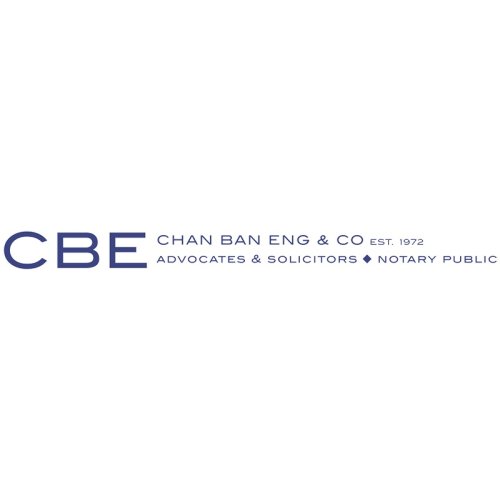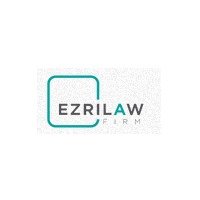Best Conveyancing Lawyers in George Town
Share your needs with us, get contacted by law firms.
Free. Takes 2 min.
Free Guide to Hiring a Real Estate Lawyer
List of the best lawyers in George Town, Malaysia
About Conveyancing Law in George Town, Malaysia
Conveyancing is the legal process of transferring ownership of property from one person to another. In George Town, Malaysia, this typically involves residential or commercial property transactions. The process includes preparing legal documents, conducting due diligence, checking land titles, and ensuring all approvals and taxes are properly managed. It is a necessary legal procedure to ensure both buyers and sellers are protected under Malaysian law and that the transfer of property is official and recognized by the government.
Why You May Need a Lawyer
While some might consider handling conveyancing independently, Malaysian law generally requires a licensed lawyer to prepare and process the essential documentation. You may need a lawyer for conveyancing in George Town if you are:
- Purchasing or selling property in George Town
- Transferring property between family members
- Refinancing with a bank or financial institution
- Resolving disputes over property boundaries or titles
- Dealing with probate or inheritance cases involving property
- Ensuring that all legal, tax, and regulatory requirements are met
- Facing complications with land titles, caveats, or encumbrances
A conveyancing lawyer’s role is to protect your interests, prevent costly mistakes, and ensure the process adheres to all local and national regulations.
Local Laws Overview
Conveyancing in George Town, Penang, is governed primarily by the National Land Code 1965, as well as specific state legislation and local government regulations. Here are key aspects to be aware of:
- Title Types: Properties may be held under freehold, leasehold, or strata titles, each with different rules and restrictions.
- Foreign Ownership: There are specific rules for foreigners buying property, including minimum price thresholds and approval procedures.
- Stamp Duty and Taxes: Buyers and sellers are subject to stamp duties and Real Property Gains Tax (RPGT). Your lawyer will calculate and ensure timely payment.
- Consent and Approvals: Transactions may require consent from the Penang Land Office, especially for leasehold titles or certain types of buyers and sellers.
- Due Diligence: Lawyers will conduct searches for caveats, liens, and encumbrances to confirm clear title transfer.
- Strata Titles: Transactions involving apartments or condominiums must comply with the Strata Titles Act 1985, and involve additional processes.
It is essential to work with a lawyer familiar with both federal and Penang state requirements to ensure smooth and lawful conveyancing transactions.
Frequently Asked Questions
What is conveyancing and why is it necessary?
Conveyancing is the legal process of transferring property ownership. It is necessary to ensure the transfer is valid, enforceable, and in compliance with local laws.
Do I need a lawyer to buy or sell property in George Town?
Yes, Malaysian law requires lawyers to prepare property sale and purchase agreements and register all changes with the Land Office.
How long does the conveyancing process take?
Typically, the process takes about 3 to 6 months, depending on due diligence checks, bank processing times, and approval requirements.
What fees are involved in conveyancing?
Common fees include legal fees, stamp duty, title search fees, land office registration charges, and real property gains tax for sellers.
Can foreigners buy property in George Town?
Yes, subject to certain restrictions such as minimum purchase price and state government consents. Your lawyer can advise on eligibility and procedures.
What is a strata title?
A strata title is used for subdivided properties like apartments and condominiums, and involves compliance with the Strata Titles Act 1985.
What is a caveat, and how does it affect conveyancing?
A caveat is a legal notice lodged on a property to warn others of an interest in that property. It must be resolved before transfer can proceed.
What happens if there is an encumbrance or lien on the property?
All encumbrances, such as bank charges or loans, must be settled and removed before the property can be legally transferred.
How is the sales and purchase agreement (SPA) prepared?
The lawyer drafts the SPA, ensuring all terms are clear and agreed upon by both parties. It legally binds both buyer and seller to complete the transaction.
What are the risks of not using a conveyancing lawyer?
Without a lawyer, you risk invalid documentation, undiscovered legal issues, delayed registration, or even loss of funds due to fraud or error.
Additional Resources
- Penang Land and Mines Office (Pejabat Tanah dan Galian Pulau Pinang): Handles land title registrations and related approvals. - Malaysian Bar Council: Directory of registered conveyancing lawyers and legal guides. - Real Estate and Housing Developers Association (REHDA) Malaysia: Information on developers and property standards. - Local Real Estate Agencies: Source of reputable agents familiar with state requirements. - National Land Code and Strata Titles Act 1985: Key legislation governing property ownership and transfer.
Next Steps
If you need legal assistance in conveyancing in George Town, Malaysia, consider the following steps:
- Consult with a qualified conveyancing lawyer experienced in Penang property law
- Gather all necessary documents, including identification, existing title documents, and loan or tax information
- Discuss your needs and expectations with your lawyer to get tailored advice
- Request a clear breakdown of legal fees and other costs involved in the transaction
- Proceed with the formal conveyancing process under legal guidance, ensuring all due diligence and compliance is met
Seeking professional support ensures a lawful, smooth, and secure property transfer in George Town.
Lawzana helps you find the best lawyers and law firms in George Town through a curated and pre-screened list of qualified legal professionals. Our platform offers rankings and detailed profiles of attorneys and law firms, allowing you to compare based on practice areas, including Conveyancing, experience, and client feedback.
Each profile includes a description of the firm's areas of practice, client reviews, team members and partners, year of establishment, spoken languages, office locations, contact information, social media presence, and any published articles or resources. Most firms on our platform speak English and are experienced in both local and international legal matters.
Get a quote from top-rated law firms in George Town, Malaysia — quickly, securely, and without unnecessary hassle.
Disclaimer:
The information provided on this page is for general informational purposes only and does not constitute legal advice. While we strive to ensure the accuracy and relevance of the content, legal information may change over time, and interpretations of the law can vary. You should always consult with a qualified legal professional for advice specific to your situation.
We disclaim all liability for actions taken or not taken based on the content of this page. If you believe any information is incorrect or outdated, please contact us, and we will review and update it where appropriate.
















